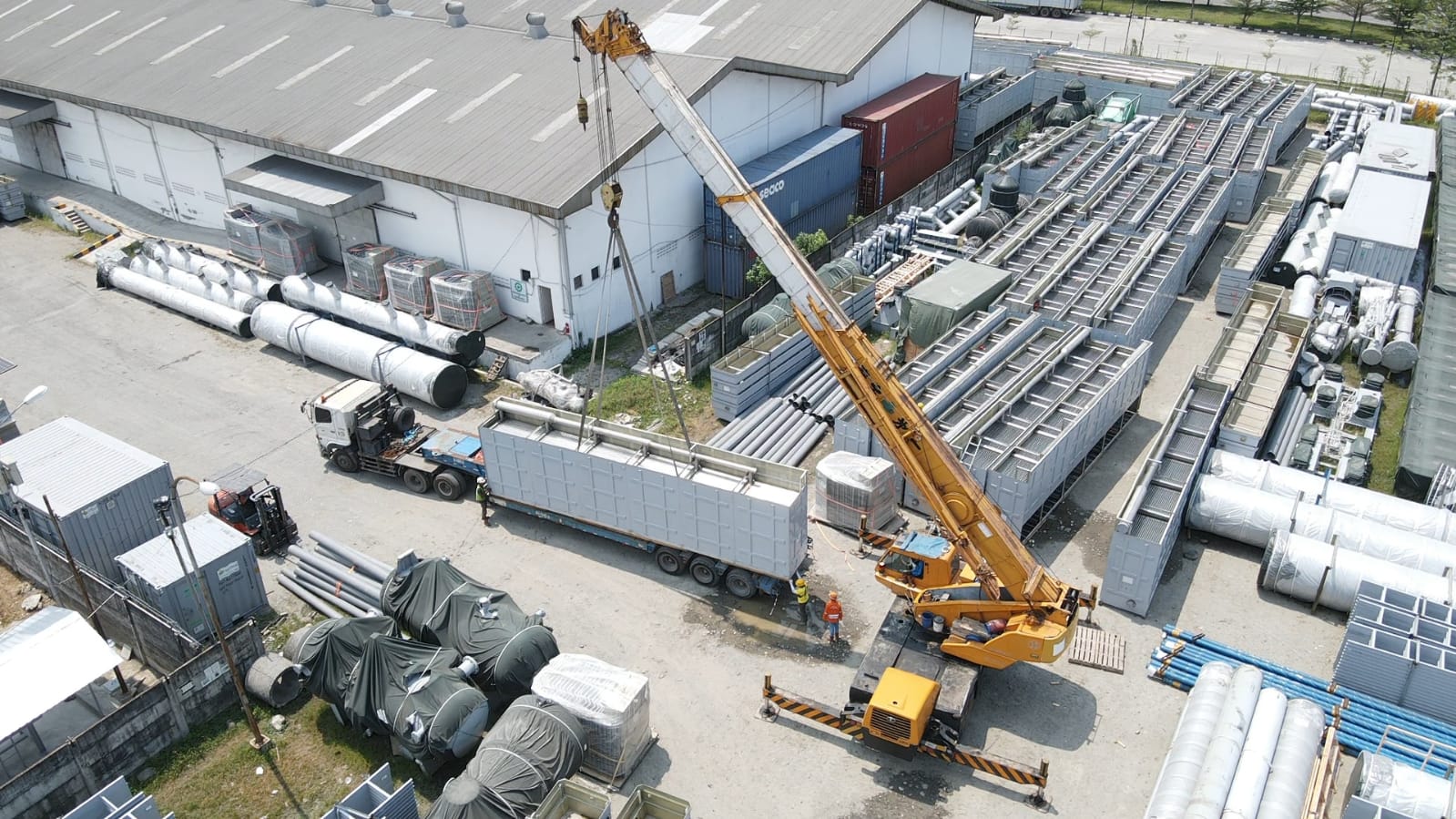Introduction: What is TPB & Why It Matters
Bonded Logistics Facilities (TPB) are designated zones authorized by the Directorate General of Customs and Excise in Indonesia to store and process imported goods (or goods from Domestic Bonded Areas, TLDDP) before they are distributed domestically or exported. These facilities offer suspended import duties and taxes (PDRI), providing significant cost-efficiency and improved cash flow — crucial for industry, trade, and investment.
Government Regulation No. 85 of 2015 and related Finance Ministry regulations (PMK) position TPBs as fiscal tools to enhance Indonesia’s logistics competitiveness. Each TPB type has its own functions and benefits — here’s a breakdown with real examples.
📌 Summary Table: 7 Types of TPB
| No | TPB Type | Main Function | Example in Indonesia |
|---|---|---|---|
| 1 | Bonded Warehouse | Store imported goods + repacking/sorting/cutting before export | Bonded Warehouses in various regions |
| 2 | Bonded Zone | Receive/process imported/TLDDP goods for export via industrial activities | Bonded Zones in Bandung/Central Java (garment) |
| 3 | Bonded Exhibition Facility | Store imported goods for exhibitions, with/without local content | Used in industrial/electronic expos |
| 4 | Duty-Free Shop (TBB) | Sell imports/TLDDP goods to specific customers (tourists) duty-free | Soekarno-Hatta Airport, Bali, major ports |
| 5 | Bonded Auction Facility | Store imported goods for auction within a limited time | DJBC-organized for seized/import surplus goods |
| 6 | Bonded Recycling Zone | Store & recycle imported/TLDDP waste | e-waste or packaging waste recycling plants |
| 7 | Bonded Logistics Center (PLB) | Multi-function warehouse with light activities, storage up to 3 years | PLB Marunda, PT Transcon Indonesia |
✅ 1. Bonded Warehouse
-
Function: Temporary storage of imported goods for repackaging, sorting, cutting before export or domestic distribution.
-
Facilities: Duty deferral for up to 2 years, PDRI exemption, loss tolerance, simplified customs.
-
Example: Warehouses for footwear raw materials.
-
Types: One-on-One (single company) or One-to-Many (distribution to multiple companies).
✅ 2. Bonded Zone
-
Function: Special industrial zones for integrated import, processing, and export activities — often for automotive, energy, heavy industry.
-
Main Benefit: Fiscal/logistics efficiency; 50% of output may go to local markets.
-
Examples: KBN Jakarta, TEPZ Semarang, Batam Bonded Zone.
✅ 3. Bonded Exhibition Facility (TPPB)
-
Function: Store imported goods (with/without local content) for exhibitions/promotional events.
-
Highlight: No import duty during the exhibition period.
-
Example: Events at JIExpo or Jakarta Convention Center.
✅ 4. Duty-Free Shop (TBB)
-
Function: Sell imported/TLDDP goods to eligible buyers (tourists) without duties.
-
Fiscal Benefit: Import duty and PDRI exemption.
-
Examples: Airports in Jakarta, Bali; international terminals.
✅ 5. Bonded Auction Facility (TLB)
-
Function: Store imported or seized goods for limited-time auctions.
-
Advantage: Efficient for liquidation of unsold or confiscated goods.
✅ 6. Bonded Recycling Zone (KDUB)
-
Function: Process imported/TLDDP waste for recycling.
-
Benefit: Supports circular economy with fiscal/logistics efficiency.
-
Example: E-waste recycling for re-export or domestic use.
✅ 7. Bonded Logistics Center (PLB)
-
Main Functions:
-
Store imported/TLDDP goods.
-
Support distribution, quality control, re-export.
-
-
Fiscal Benefit: Import duties & taxes deferred up to 3 years.
-
Advantages: Flexible operations, strategic locations near ports/industries.
-
Example: Transcon Indonesia PLBs in Jakarta, Medan, Gresik.
-
Role: Strengthens Indonesia as a regional logistics hub.
🎯 Summary: What’s Best for What?
-
Manufacturing → Bonded Zones or Bonded Warehouses.
-
Promotion & Exhibition → TPPB.
-
Duty-Free Sales → TBB.
-
Auction Sales → TLB.
-
Industrial Waste Recycling → KDUB.
-
Logistics & Distribution → PLB.
🧩 Why Your Business Should Understand TPB
-
Cash Flow Optimization – delay duty/tax payments.
-
Procedural Efficiency – faster, automated customs clearance.
-
Operational Flexibility – light processing, sorting, QC within facilities.
-
Scalable Use – from dedicated warehouses to national logistics hubs.
-
Competitive Advantage – especially in export-import supply chains.
📌 Conclusion
TPB isn’t just about duty suspension. It’s a fiscal-logistics strategy to enhance Indonesia’s industrial competitiveness. By choosing the right TPB model — warehouses, bonded zones, TPPB, TBB, TLB, KDUB, or PLB — businesses can import, export, and distribute goods more efficiently, cost-effectively, and compliantly.
